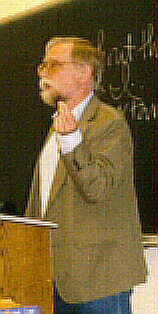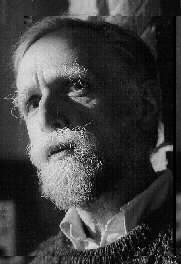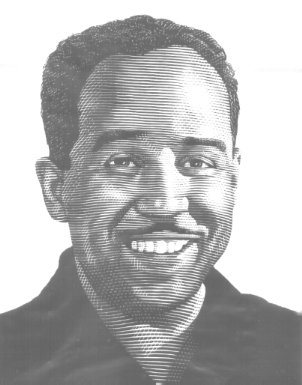| Lawrence Ferlinghetti (1919 - )
Born in Yonkers, New York, Lawrence Ferlinghetti spent his early childhood
in France, but he only learned to speak English at the age of five, when
he returned to America. Ferlinghetti began writing poetry during
his years at boarding school in the late 1920's. He received his
B.A. from the University of North Carolina, an M.A. from Columbia University,
and a Ph.D. from the Sorbonne. During World War II he served in the
US Naval Reserve and was sent to Nagasaki shortly after it was bombed.
In 1953, Ferlinghetti and Peter Martin began to publish City Lights magazine.
They opened the City Lights Books Shop in San Francisco to support
the magazine. In 1955, they began City Light Publishing, a book-publishing
venture. City Lights became known as the center of the "Beat" movement.
Ferlinghetti is the author of more than thirty books of poetry, including
Americus,
Book I (2004), San Francisco Poems (2002), How to Paint Sunlight
(2001),
A
Far Rockaway of the Heart (1997),
These Are My Rivers: New &
Selected Poems, 1955-1993 (1993),
Over All the Obscene Boundaries:
European Poems & Transitions (1984),
Who Are We Now? (1976),
The
Secret Meaning of Things (1969), and
A Coney Island of the Mind
(1958).
In 1994, San Francisco renamed a street in his honor. He was also
named the first Poet Laureate of San Francisco in 1998. In 2000, he received
the lifetime achievement award from the National Book Critics Circle.
Major themes: anarchy, mass corruption, engagement, and a belief in
the surreality and wonder of life.
Influences: Hemingway, Faulkner, Dos Passos and Wolfe.
Poems to look for: "Constantly Risking Absurdity," "I am Waiting," "Wild
Dreams of a New Beginning," "Seascape with Sun and Eagle," "A Vast Confusion,"
"Bird with Two Right Wings," and "Baseball Canto."
For more information about Lawrence Ferlinghetti, visit http://www.citylights.com/CLlf.html |


